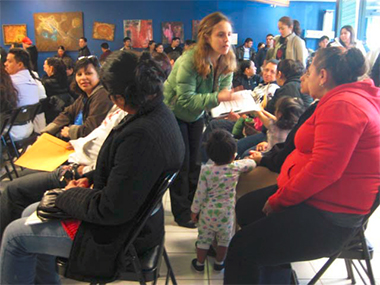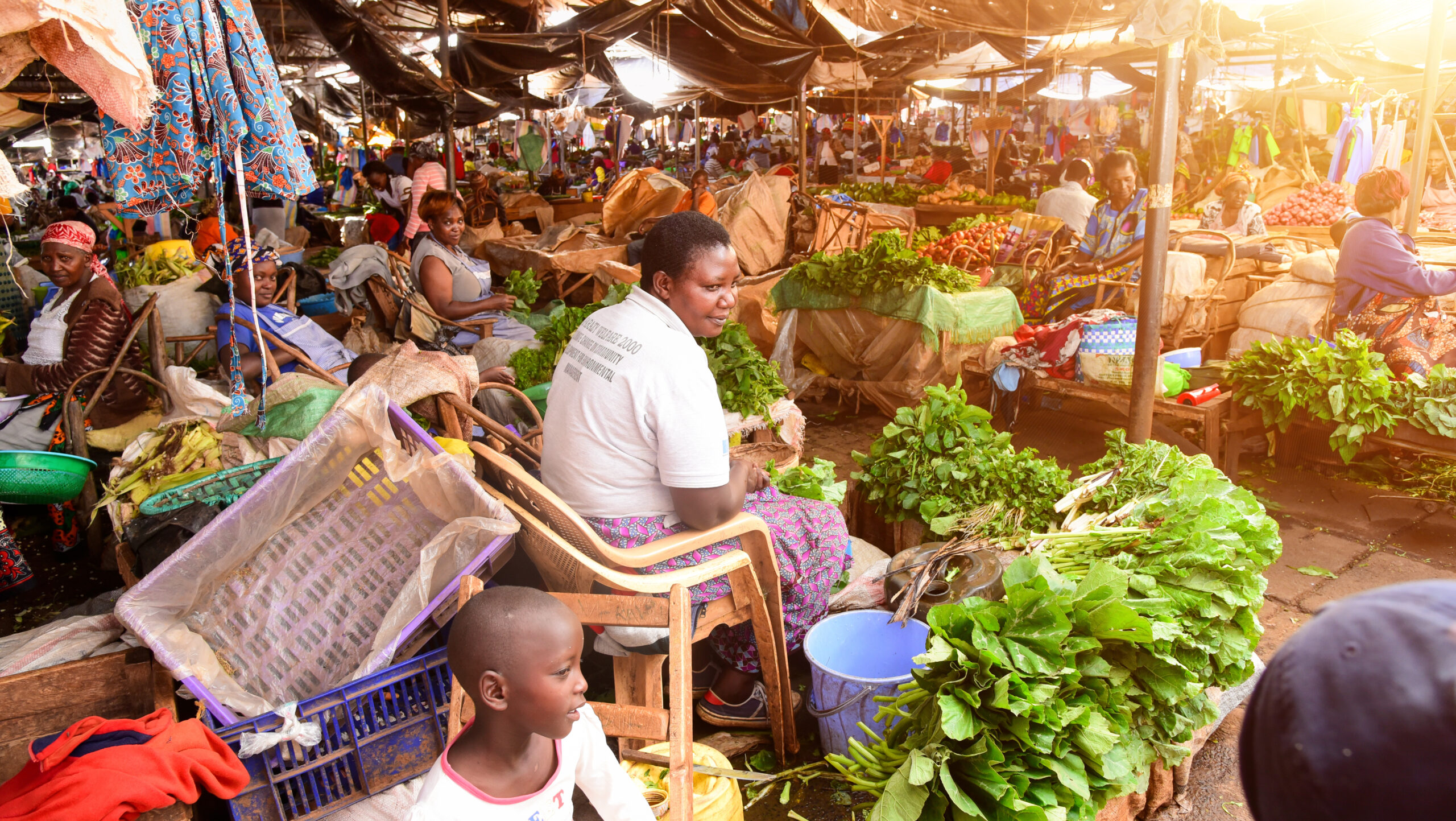IFPRI research sheds new light on migrant remittances and spending patterns among recipients living in El Salvador.
Globally, remittances—money sent home from migrants working and living abroad—account for more than $400 billion a year. That’s no small potatoes. But there’s a lot we don’t know about this stream of remittances—and plenty that even the people involved don’t know.
Far from their homes, migrants who send money to their families can’t necessarily be sure how that money is spent. Is it paying for frivolous extras? And those families back at home don’t always know what share of their income migrants are sending. Are they earning a lot and only sending a little?
IFPRI senior researcher Kate Ambler set out to learn how these information gaps shape migrants’ decisions about how much to send—and recipients’ decisions about what to do with the money once it arrives. She designed a series of experiments involving Salvadoran migrants living in the greater Washington, DC, area and their friends and families back home.
The costs of information sharing run both ways
For migrants who are expected to send large portions of their incomes home, there are advantages and disadvantages to sharing information on their earnings. Maintaining open communication and sharing their incomes generously can protect them against social backlash when they visit home. At the same time, migrants can face higher-than-expected costs of living while working abroad. They may withhold information about how much they earn out of fear that they’ll be asked to send more money than they can reasonably afford to do. “The migrants in this study,” says Ambler, “reported that they felt a lot of pressure to send money back to their home communities.”
Recipient families, meanwhile, may have their own reasons for sharing or withholding their spending decisions with the migrants who send money. They might share information when remittance money goes toward a family member’s educational expenses but hide spending decisions that could be viewed as frivolous.
The lottery experiment
Ambler wanted to put these ideas to the test. Each of the migrants participating in Ambler’s study was eligible to receive a $600 lottery payout. At the outset, she asked migrants how much of the payout they would send to a designated recipient back home in El Salvador. One group of migrants was told that the recipient would be informed of the migrant’s decision, and another group was told that this information would remain secret.
The information—or lack of it—made a difference. Ambler found that when the information on their earnings was secret, migrants sent less money.
Back in El Salvador, Ambler also surveyed the designated recipients. Half of the recipients were told how the migrant preferred the money to be spent, while the other half were not. Here too, information influenced people’s decisions. When they knew how the sender wanted the money to be spent, recipients were more likely to respect those preferences. Interestingly, though, whether or not their spending was reported back to the sender made no difference to recipients’ spending behavior.
“Most theoretical models assume perfect information,” says Ambler, “but these studies clearly show that both groups are making important financial decisions based on imperfect information.”
At this stage, Ambler is cautious about overstating the welfare implications of this research. In some cases, lowering information barriers may lead to migrants sending more money home, which in turn may result in better development outcomes among recipient families. On the other hand, better communication between migrants and recipients may also lead to better understanding of migrant situations and decreased pressure to send money back home.
What’s clear at this point is that access to information on both sides affects how much money is sent as well as how this money is spent. Based on these early studies, it seems that remittances do in fact come with strings attached. Now it’s up to researchers and policymakers to better understand the underlying mechanisms behind the decision making behaviors on both sides in order to support positive development outcomes for all.







